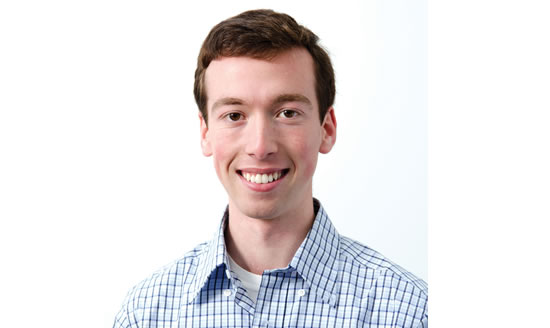CAREERS
An Interview with Ornithologist Benjamin Van Doren
By Lydia Liebman & Dr. Pola Rosen

Benjamin Van Doren, a senior biological science and biometry and statistics major at Cornell University set to graduate this year, has recently been named as a 2016 Marshall Scholarship. The prestigious honor will enable him to attend the Edward Grey Institute of Field Ornithology at Oxford University where he will pursue a graduate degree in ecology and evolutionary biology with a focus on bird migration.
Education Update spoke to Benjamin about his life-long love of all things birds and his exciting future.
When did you become interested in ornithology?
There was a program when I was in elementary school called Classroom Feeder Watch. My teacher placed bird feeders outside of our windows. From this activity, we learned how to identify different species. Then we would conduct systematic counts of the birds species identified at different points in time in a scientific protocol that was developed by people from Cornell’s Feeder Watch program. We would count the birds and enter the data online and I thought it was great that real scientists were using our information.
I became very motivated in 3rd and 4th grade. My parents bought me a bird feeder and I would go on local trips to Audubon Societies. In 8th grade I met another young birder in Central Park and he told me about a club called “The New York State Young Birder’s Club.” The club really reinvigorated my interests and motivation because I finally had people around my age to connect with.
What does it mean now that you have received this scholarship?
I have at least two years of tuition covered plus living and travel expenses for attending a university in the UK of my choosing. I chose Oxford because it has a great ornithology institute. I know it was the one place I would want to go. I’ll be staying in the UK for three years.
Did you have any mentors?
Andrew Farnsworth guided me through an important high school research project and to do this day we still collaborate. He was instrumental on the aspect of research, which was one of the reasons I was chosen for the scholarship. Additionally, at Cornell there have been several great people who have guided me.
What will you do after your three years in the UK?
I plan to return to the US and do one or more post-doctoral fellowships. My prime goal is to get an academic job at a university.
What is your primary area of study?
I would say my primary fascination is with migration. I think it’s an amazing feat to accomplish. For example, there’s a bird species that travels from Alaska to New Zealand nonstop over open water and somehow they have the ability to both undertake this very taxing flight and navigate extremely precisely. If there’s one small error in the directional sense NZ would be totally missed.
What advice would you offer to someone interested in a similar career path?
I would advise people to pursue what fascinates them. Sticking to that for me has led to great opportunities that I appreciate immensely. Doing something that is interesting to you is a great motivator. Learn about the mysterious and find out the answer to questions. Don’t be afraid to explore. For me, following that particular philosophy has given me incredible opportunities to travel and learn new things.
In addition, don’t be afraid to reach out to people because you never know who is interested in the same field- it can be pay dividends.
What are you most proud of at this point in your career?
After you’ve done all the work and put in countless hours analyzing the data and writing up a scientific paper, and then gone through the trials and tribulations of the scientific publishing process, it’s very satisfying to see your paper published and out into the world. People can read about the work and discoveries you’ve made. That final step is a great feeling. In certain cases out in the field doing the work there can be moments when you realize that you have something really cool or interesting and that’s a great feeling as well. #
